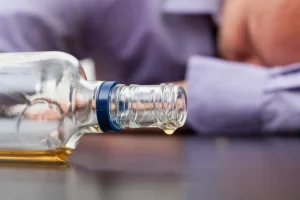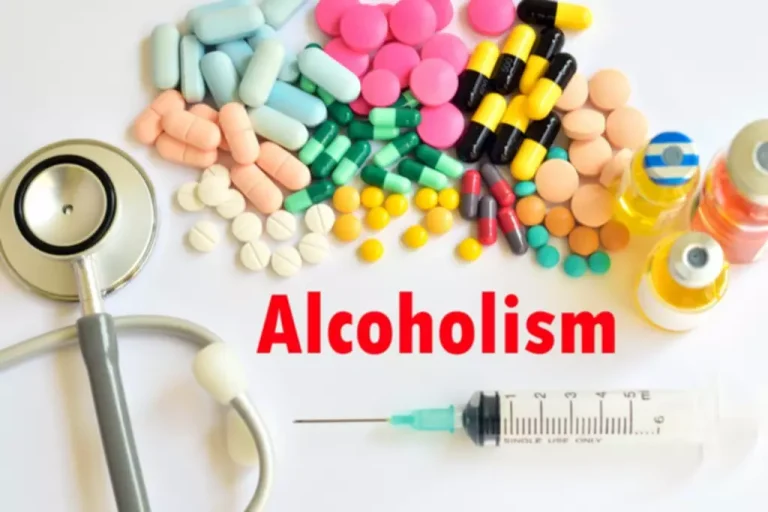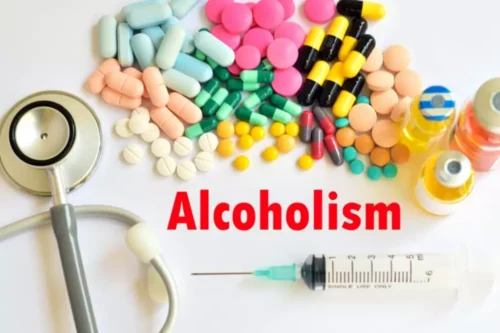
Sometimes giving up drinking involves anhedonia, which is an inability going back to drinking after being sober to find pleasure in the activities you once enjoyed. I learned that if I’m going to be around drinkers, it’s best to plan ahead. When I went away with my friends to the lake house, I called my local cocktail bar ahead of time and asked if they could make me a nonalcoholic beverage to-go. I felt silly doing it, but they told me my order wasn’t all that unusual.

Can I prevent alcohol withdrawal?

I don’t think anyone would have called me an alcoholic, but I knew I had a problem when I realized how often I was writing in my journal about how crappy wine made me feel. For years, I toyed with the idea but couldn’t ever seem to do it until my drinking started to keep me up at night. I tried natural sleep supplements and acupuncture, but neither worked. With the excesses of the holidays behind us, a growing number of people have taken on the challenge of Dry January, a pledge to abstain from alcohol for the entire month. While the recovery period may be challenging, it’s also filled with milestones that can transform your life into one that’s better than you could have previously imagined. Clinical evidence suggests that the most common causes of relapse during this stage are neglecting self-care or not attending self-help groups.
Figure out what scares you about getting sober
- On the morning of Dec 23, 2013, after another night of heavy drinking and reckless behavior, I finally admitted to myself that I had a drinking problem.
- It made me think about how I was only 7 years old when I stopped eating meat.
- This commitment puts the power back in your hands to decide if you ever want to drink again, but once you experience the great benefits, you probably won’t want to.
- They see the pain and struggles and reality of addiction that you may feel others can’t begin to comprehend.
- Hosted by therapist Amy Morin, LCSW, this episode of The Verywell Mind Podcast shares how to avoid repeating mistakes and build better habits.
Matthew Perry was just one of many celebrities whose weekly whereabouts would alternately display their shiny, happy mugs and/or much less happy mugshots splashed across tabloids. If it seems like some people can’t catch a break when it comes to breaking free of their addiction, according to science, many people have their genetics to blame. This is a treatment that first prevents someone from using their substance of choice and then provides information about the harm of using. Of course, we all want a simple, achievable number for how long we should abstain from alcohol in order for our bodies to fully heal from its effects.

See yourself as a person who doesn’t drink
- I felt silly doing it, but they told me my order wasn’t all that unusual.
- Police quickly assured the public that there were no signs of foul play while simultaneously assuring the public that no official cause of death would be announced for quite some time.
- Clinical evidence suggests that the most common causes of relapse during this stage are neglecting self-care or not attending self-help groups.
- I was grieving her absence, and I urgently needed a drink to take away some of the sadness.
- If you’re keeping up with this average (or less), the damage from alcohol is most likely minimal.
It’s often easier to turn down a drink when you don’t have to do it alone. Skoulas says having a reliable circle of loved ones can make all the difference in staying sober. In addition to feeling less anxious and having better digestion, you may notice bigger changes a few months into sobriety.

Take some time to explore your relationship with alcohol
- Talk therapy is an important part of treatment for alcohol use disorder, but Dr. Streem says just about anyone who is making a life change, like quitting drinking, can benefit from therapy.
- This past weekend, we woke up to the devastating news that beloved “Friends” actor Matthew Perry, who had long struggled with addiction, was found dead in the bathroom of his California home.
- If they stop drinking, they develop symptoms of alcohol withdrawal, which include muscle shaking, sweating, headaches, sensitivity to light or sound, and nausea.
- Instead of criticizing yourself for having a hard time or slipping up and having a drink, remember that no one’s perfect.
Of course, addressing your triggers at the source can also go a long way toward helping you make lasting changes. “A typical craving might last for 3 to 5 minutes,” notes Christina Hanks, senior recovery coach and care team manager at Tempest. “Alcohol cravings can be very intense, especially in early recovery,” explains Ruby Mehta, licensed clinical social worker and director of clinical operations for digital recovery platform Tempest.
- Satisfying hobbies can distract you from wanting to drink, but they also help you relax — something everyone needs to do.
- This gives you a quick and easy explanation for why you aren’t drinking.
- If you’re having difficulty sticking to your goal or just want some extra guidance, consider reaching out for professional support.
- All I can do is tell you that the fear is natural, but you have to proceed anyway.
- If you feel like your relationship with alcohol needs an overhaul, you’ve got plenty of company.

Aside from the occasional craving, I don’t really think about alcohol. I drink raspberry shrub cocktails when I vacation with my girlfriends and go out for ice cream with my husband on the weekends. I’m less anxious and more present in conversations and in the world around me. During the recovery stage, it’s not uncommon to feel temporarily worse. For some people, AUD has hurt their relationships, careers, health, finances, self-esteem, and other aspects of their lives.
Research shows that if you maintain these types of toxic relationships, your chances of relapsing are greater. To avoid relapse and remain sober, it’s important to develop healthy relationships. Some of the immediate changes you will need to make will be obvious—like not hanging around the people that you used with or obtained drugs from.

